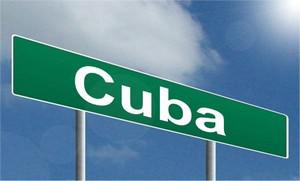CubaU.S. allows lawsuits against foreign companies using property seized by Cuba
The U.S. will allow U.S. citizens to sue foreign companies and individuals who use property confiscated from them decades ago by the government of then-Cuban leader Fidel Castro. The decision likely will hinder Cuba’s efforts to encourage foreign investment to the island.

Cuba will now face lawsuits // Source: Picserver.com
The administration of U.S. President Donald Trump is allowing U.S. citizens to sue foreign companies and individuals who use property confiscated from them decades ago by the government of then-Cuban leader Fidel Castro. Secretary of State Mike Pompeo announced Wednesday the suspension of a law created in 1996 had been lifted, allowing such lawsuits to be filed for the first time.
The decision likely will hinder Cuba’s efforts to encourage foreign investment to the island. The move is part of Trump’s broader campaign to oust Venezuelan President Nicolas Maduro, whose grip on power depends on support from Cuba, Russia, China and other countries.
When making the announcement to reporters in Washington, Pompeo said Cuba has undermined the security and stability of the U.S. and other countries in the Western Hemisphere.
“The Cuban regime has for years exported its tactics of intimidation, repression and violence,” Pompeo said. “They’ve exported this to Venezuela in direct support of the former Maduro regime. Cuban military intelligence and State Security Services today keep Maduro in power.”
The European Union has warned it will protect the interests of European companies or people conducting business in Cuba who may be affected by any lawsuits. Spain, which has large investments in Cuba, has asked the EU to challenge the U.S. decision, a senior government official said.
European countries have long expressed concern about lifting waivers on the law, Title III of the 1996 Holmes-Burton Act, and threatened to challenge the move at the World Trade Organization. The act codified all U.S. sanctions against Cuba into law 23 years ago, but was waived by every U.S. president since then, due to opposition from the international community and the desire to avoid trade disputes and potential lawsuits.
“Allowing these lawsuits marks another own goal in President Trump’s Cuba policy,” said James Williams, president of Engage Cuba, which lobbies for the normalization of U.S. ties with the communist island. “This doesn’t punish the Cuban government; it lets them off the hook.”
Williams told VOA that American and European companies, which had permission to do business with Cuba, will be the ones hurt by the action, and Washington should negotiate for direct compensation from the Cuban government for property confiscation.
“The extraterritorial application of the U.S. embargo is illegal, contrary to international law and I also consider it immoral,” EU ambassador to Cuba Alberto Navarro said in Havana.
A six-decade-old economic embargo of Cuba by the United States remains in effect.
During the Obama administration, there were initiatives by Washington to calm the rough waters across the 150 kilometers (93 miles) separating Florida and Cuba, but the Trump administration has reverted to a Cold War-era approach toward Havana.
“It is ironic that President Trump would make this fringe decision after the Trump Organization worked for years to open a Trump Hotel and golf course in Cuba,” Williams told VOA. “We have 60 years of history that shows we need to try something new. The Cuban and American people deserve better.”
This article is published courtesy of the Voice of America (VOA)
